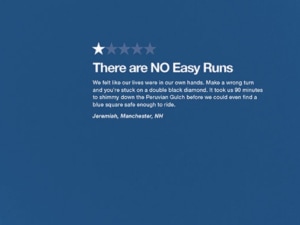“The customer is always right,” but that assumes you can differentiate between a legitimately unhappy customer, a Drama Queen and a Troll.
Join us for this episode to talk about the differences, and some strategies for working with each!
Listen Here:
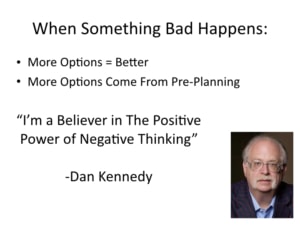 We’re big believers in the power of positive thinking, but for this series of episodes, we’re focusing on the “power of negative thinking.”
We’re big believers in the power of positive thinking, but for this series of episodes, we’re focusing on the “power of negative thinking.”
It’s much easier to deal with negative situations if you think about them in advance and make some decisions sitting at your desk with a cup of coffee.
We think better, and make better decisions, when we’re comfortable!
Last week, we discussed what to do about natural disasters and mistakes made by ourselves or our team.
This week, we’re going to talk about the related (and overlapping) situation of having an unhappy customer, a “drama queen” or a “troll” interacting with your company online or in real life.
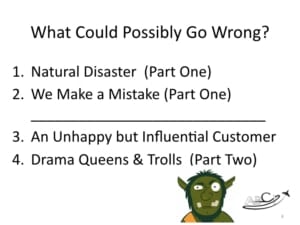 There are aviation companies that seem to attract legal trouble and scandals.
There are aviation companies that seem to attract legal trouble and scandals.
If that’s the case, there’s not much we can do for you. But for good, law-abiding companies that try do to their best by their customers, we have some advice.
No matter how hard you try to make every customer happy, there will be some that you can’t please.
This could be because of a natural disaster or a mistake made by you or someone on your team. We address those instances in this episode.
This could also be a result of mismatched expectations or circumstances beyond their control.
Our advice?
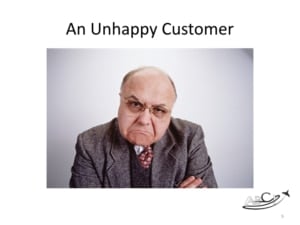 Aviation customers DO, rightfully, have a higher expectation of high quality products and services than the average member of the public.
Aviation customers DO, rightfully, have a higher expectation of high quality products and services than the average member of the public.
When something goes wrong, we (and most of our clients) will go way above and beyond the usual expectation in order to resolve a problem for a customer.
As an example, when a client’s website was hacked, we stayed up all night with our developers to get the situation resolved.
(And got it fixed within hours.)
We know of no other marketing or website development company that would do that.
So, emergency response is the order of the day when a customer has a legitimate grievance.
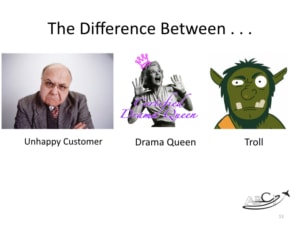 Knowing the Difference Between an Unhappy Customer, a Drama Queen and a Troll:
Knowing the Difference Between an Unhappy Customer, a Drama Queen and a Troll:
While unhappy customers need to be accommodated, Drama Queens and Trolls are people who can be a huge detriment to your business by consuming an unreasonable amount of time, energy and goodwill of your team with less-than honorable intentions.
Some of the warning signs of a Drama Queen
You’ll have a different list of warning signs based on your experience, but here’s our list:
- Complaining frequently about other people on unrelated topics.
- Missing lots of meetings and office hours
- Being “too busy” and rushed to communicate and respond to phone calls.
- Not interested in collaboration, the “just do it for me” types
- Being obnoxious to our other clients and partners.
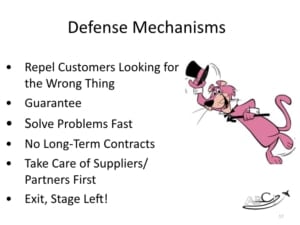 If you recognize that a customer is exhibiting a lot of these behaviors, you may find that they’re not a great fit for your product or service. You can resolve it by making an informed referral to someone whose services are a better fit for their preferences. In extreme cases, you may need to seek a practical or legal remedy to separate yourself from this customer in a way that does the least amount of harm or inconvenience to your company and to them.
If you recognize that a customer is exhibiting a lot of these behaviors, you may find that they’re not a great fit for your product or service. You can resolve it by making an informed referral to someone whose services are a better fit for their preferences. In extreme cases, you may need to seek a practical or legal remedy to separate yourself from this customer in a way that does the least amount of harm or inconvenience to your company and to them.
Warning signs of a Troll
- Complaints that are irrelevant to the value you bring
- Complaints or obnoxious customers from non-customers
When you recognize a “troll,” the important thing is to avoid providing energy to the relationship.
Here’s our decision tree for dealing with negative comments or reviews online: 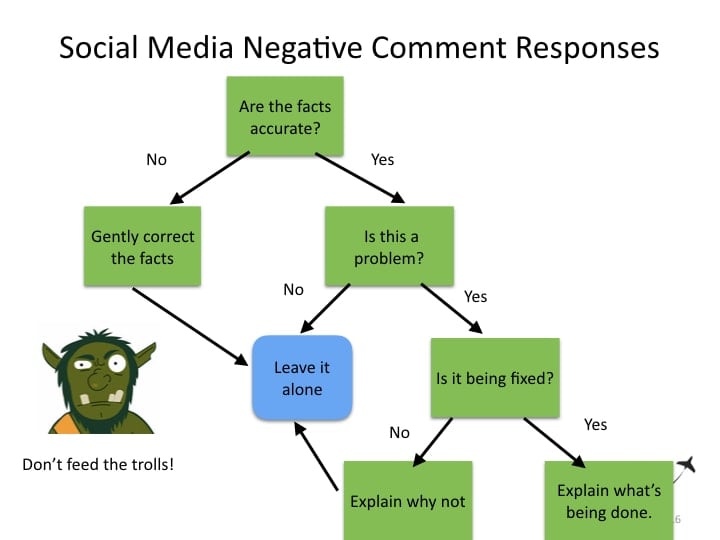
Trolling Your Trolls
Snowbird Ski & Summer Resort in Utah created a marketing campaign around their “one star” or negative reviews, by printing them verbatim against the gorgeous landscape photography that illustrates the mismatch in expectations in glossy magazine spreads and billboards:
“Trolling your trolls” in an advertising campaign may be a bit extreme, but it’s certainly legitimate to use negative reviews in your sales process – tell prospects that they may not be a good fit for your product or service under specific circumstances similar to those reviewers.
This will be seen as disarmingly honest and appealing to prospects who ARE a good fit, and repellent to those who are NOT a good fit.
Both of those things are worthy objectives.
Being able to recognize and having good defensive procedures for unhappy customers, drama queens and trolls can save a LOT of time and frustration, and make your work life a whole lot more pleasant and profitable!
Podcast: Play in new window | Download
Subscribe: Spotify | Amazon Music | RSS



